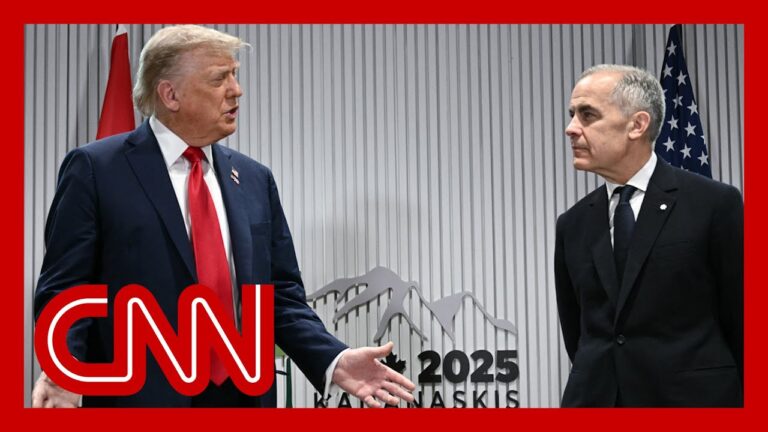Video at the bottom!
During a recent G7 summit in Alberta, U.S. President Donald Trump engaged in a candid meeting with Canadian Prime Minister Mark Carney. The two leaders exchanged pleasantries, with Carney extending birthday wishes to Trump and highlighting the significance of the G7’s 50th anniversary. They discussed the vital role of U.S. leadership in global geopolitics and economics, expressing optimism about working collaboratively on trade issues.
Trump took the opportunity to remark on the historical context of the G7, specifically mentioning the removal of Russia from the group, which he labeled a significant mistake. He speculated that, had Russia been included, the current conflict in Ukraine might not have escalated. This assertion drew attention as it shifted focus to U.S.-Russia relations amidst ongoing international tensions.
When the discussion turned to trade, Trump and Carney acknowledged differing approaches to tariffs. While Trump affirmed his preference for straightforward tariff policies, Carney seemed to advocate for a more nuanced strategy. Both leaders expressed hope for reaching trade agreements in the near term.
The conversation also touched upon rising tensions with Iran, where Trump indicated that Iran wishes to de-escalate the situation but underscored that negotiations should have occurred sooner. He reiterated U.S. support for Israel and noted that Iran is not winning the ongoing conflict, calling for immediate dialogue.
As the meeting progressed, it became apparent that Carney was eager to conclude the public Q&A session, likely due to the rising tension that often accompanies Trump’s impromptu remarks. The exchange revealed the complexities of international diplomacy during a time of heightened global challenges, highlighting the distinct perspectives between Trump and other G7 leaders on issues such as trade, security, and foreign policy.
The G7 summit proceedings showcased not only the dynamic between the two leaders but also the broader implications of their dialogue on the international stage. As discussions continue, the divergence in views, particularly regarding Russia and trade, suggests a multifaceted negotiation landscape moving forward.


